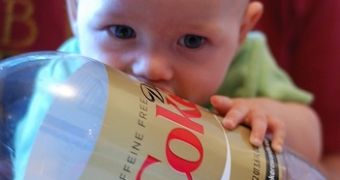The alarming rates of obesity with all segments of the population have lawmakers at a loss as regards the methods they should approve and promote to bring them down again and prevent the epidemic from further spreading. One such method is putting a tax on soda and all sweetened beverages, much in the manner that alcohol and tobacco is taxed, the New England Journal of Medicine informs.
Backers are now saying that taxing just a penny an ounce of all these types of beverages would lead to a marked decrease in the intake, since the population would be discouraged from buying them, if you will. Moreover, they are adding that the money raised with the help of this tax could later be used to fund specialized programs that are meant to combat and prevent obesity.
This proposal comes on the heels of a study published this week that shows that 20 percent of children in the US are obese, and they are, understandably, the very ones also targeted by soda companies.
Sweetened beverages “may be the single largest driver of the obesity epidemic. The strongest science exists on soda and sweetened beverages. Those studies are quite consistent in showing a relationship between soda intake and bad health outcomes.” Prof. Kelly Brownell, director of the Rudd Center for Food Policy and Obesity at Yale, shares. Countless other such methods have shown that, while unpopular at first, they are nevertheless successful in that they lead to a decrease in consumption.
For instance, NEJM notes, a 10 percent “increase in price leads to a 7.8% decrease in the amount people drink.” Moreover, this would also mean that the money off the tax could be used for nutrition and obesity-prevention programs, with the state of New York standing to tally an estimated $1.2 billion a year from it.
Another advantage to this is the fact that, if the law is passed, the poor will feel it harder, which means they will be the first to cut down on the intake of sugared beverages, as opposed to the wealthy consumers. “The poor could most benefit from reduced consumption because they’re most vulnerable to obesity and diabetes,” Brownell adds.
A similar method was proposed just recently in the UK as well, with Glasgow GP David Walker stating that chocolate should also be taxed, because it is one of the main culprits for the soaring obesity rates. The proposal was met with outrage and disdain by media representatives, who rallied up to say that taxing chocolate for encouraging overeating was like taxing cliffs for “promoting” suicide.

 14 DAY TRIAL //
14 DAY TRIAL //